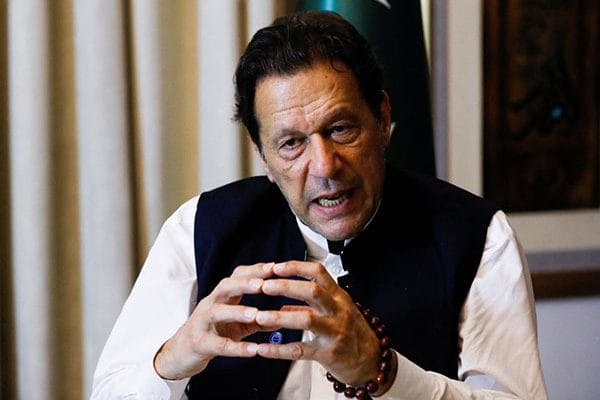As a figure of international repute, the arrest of Pakistan’s former Prime Minister Imran Khan on corruption allegations is a grim reflection of the tumultuous state of Pakistani politics. The Pakistan Tehreek-e-Insaf leader, who once held the reins of the nation, is now in the custody of the paramilitary, an event that has shaken the very foundations of Pakistani democracy.
Imran Khan, a former cricketing hero-turned-politician, has always been a controversial figure. His transition from the cricket pitch to the political arena was seen by many as a breath of fresh air in a country often marred by political unrest and corruption. However, the recent turn of events paints a different picture, one that is shrouded in confusion, allegations, and distrust.
I grew disillusioned with Imran Khan due to his contradictions; he vowed to resign under pressure pre-government, only to claim post-tenure that he was powerless against the military, contradicting his initial stance. Additionally, his tenure lacked significant reforms or even clear attempts to improve critical institutions like the police, courts, and military, further dampening my support.
Khan’s journey from a celebrated sports icon to an embattled political leader is marked by a series of questionable decisions and blame games that have, unfortunately, marred his legacy. His tendency to blame the Pakistan Army for his administrative failures was a persistent theme during his tenure. While it’s true that the civil-military relationship in Pakistan has been contentious, Khan’s tactic of deflecting responsibility did more harm than good.
The constant act of shifting blame to the army, an institution that has had a significant role in Pakistan’s history, gradually alienated a significant portion of the populace. The army has been a part of Pakistan’s fabric for decades and blaming it for governance failures, without presenting concrete proof or initiating constructive dialogues, only served to erode the trust of the people in the leadership.
Khan’s downfall, however, should not be seen as a simple case of political failure. It is also an opportunity for reflection and learning, a chance to reassess the role of leadership, accountability, and responsibility in governance.
Time to learn
To be an effective leader, Imran Khan needs to understand that leadership is as much about taking responsibility as it is about wielding power. It is about making difficult decisions, standing by them, and facing the consequences with dignity and grace. And so, if he does regain power, it would be incumbent upon him to learn from the past.
Khan also needs to recognise that blaming the army or any other institution only weakens his credibility as a leader. Therefore, if he returns to power, he must establish constructive dialogue with all institutions to ensure that they collaborate for Pakistan’s progress rather than working against each other.
The hope is that this arrest, although unfortunate, will serve as a wake-up call. That it will impel Khan to introspect, to understand where he went wrong, and to take corrective measures. The Pakistani people deserve a leader who takes responsibility for his actions and decisions, a leader who does not shy away from accountability but embraces it.
The story of Imran Khan is a cautionary tale for all aspiring leaders. It teaches us that charisma and popularity are not enough to govern effectively. It underscores the need for transparency, accountability, and a sense of responsibility. It’s a reminder that blame-shifting only serves to erode public trust and that a leader must always be willing to face the music.
The arrest of Imran Khan is not just a development in Pakistan’s political landscape. It’s an opportunity for Khan and other leaders to reflect, learn, and grow. The hope is that if Khan does return to power, he will lead with more responsibility, more accountability, and more humility. Only then can he truly be the hero that Pakistan needs.
The author was formerly associated with Pakistan Tehreek-e-Insaf and worked for its social media team. He tweets @FarhanKVirk. Views are personal.
(Edited by Prashant)






